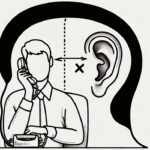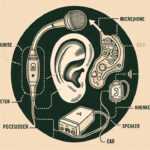This 30 Second Technique is Shockingly Effective
Embracing Identity: Cultural Perspectives on Being Deaf from Birth

Introduction to Deaf Identity
Understanding one's identity is a journey that takes on additional layers for individuals who are deaf from birth. The term "deaf from birth" indicates that a person has been profoundly deaf since their earliest moments. It's not just a physical trait but a core aspect of their personal and cultural identity. Individuals deaf from birth often experience the world in unique ways that shape their perspectives, relationships, and place within society.
The significance of cultural identity for someone deaf from birth cannot be overstated. It influences self-perception, community connections, and interactions with the broader world. Deaf culture is rich with traditions, language, and values that create a strong sense of belonging. For those deaf from birth, it offers a framework through which they can navigate life's challenges and celebrate their experiences.
The diversity of experiences in the deaf community underscores that being deaf from birth is not a monolithic experience. Factors such as geographical location, access to resources, and family dynamics contribute to a broad spectrum of life stories within the community. Recognizing this diversity is essential in appreciating the full tapestry of deaf culture and identity.
The Historical Context of Deaf Culture
Deaf communities boast a rich heritage that spans the globe, with each possessing its unique sign language, customs, and folklore. Historically, these communities have been bastions of support and education for individuals deaf from birth, offering a shared identity and a sense of belonging against the backdrop of a predominantly hearing society.
Attitudes towards being deaf from birth have evolved significantly over the years. Past views often framed deafness as a deficiency to be remedied or hidden. However, advocacy and increased awareness have shifted the narrative towards one of empowerment and pride. The deaf community's resilience in the face of such adversity is a testament to its strength and unity.
The role of sign language in cultural bonding is pivotal. It's not merely a tool for communication; it's the cornerstone of cultural identity for many deaf individuals. Sign language allows for the transmission of culture, history, and shared experiences, thus reinforcing the communal bonds that are so vital to the identity of those deaf from birth.
Family Dynamics and Being Deaf from Birth
Communication is the heart of family dynamics, and when a family member is deaf from birth, it shapes the ways in which connections are formed. Hearing family members often learn sign language to foster inclusivity. This dynamic can strengthen ties, as family becomes not just a source of love, but of mutual understanding and support.
The impact of deaf parents on deaf children can be profound. Deaf parents typically pass on not only sign language but also the heritage and customs of deaf culture. This shared identity from birth can instill a strong cultural pride and a solid foundation for navigating both the deaf and hearing worlds.
Navigating a hearing world as a deaf family presents unique challenges and opportunities. From advocating for accessibility to educating others about deaf culture, these families play a crucial role in shaping a more inclusive society that recognizes and respects the deaf experience.
Education and Empowerment
Educational opportunities for individuals deaf from birth have expanded, with schools dedicated to deaf education providing curricula in sign language. These institutions are not only academic havens but also environments where deaf culture and identity are celebrated, fostering empowerment from a young age.
The importance of deaf role models and mentors in the lives of those deaf from birth is immeasurable. They serve as tangible proof of what can be achieved, breaking down barriers and inspiring future generations to pursue their passions and goals without being defined by their deafness.
Deaf education advocacy is crucial for maintaining cultural pride and ensuring that the rights and needs of those deaf from birth are met. Advocates push for resources, recognition, and respect within the educational system, empowering deaf individuals to embrace their identity and reach their full potential.
Socialization Within the Deaf Community
Finding acceptance and belonging is a fundamental human desire. For individuals deaf from birth, the deaf community often provides this sense of inclusion. It's a space where communication barriers fall away, and shared experiences forge strong connections.
The role of deaf clubs and associations is central to the social life of many deaf individuals. These organizations offer social events, advocacy, and support that are invaluable in maintaining the cultural fabric of the deaf community, allowing members to engage fully without the communication barriers present in the wider society.
Despite the strong support network, social challenges persist. From overcoming stereotypes to ensuring access to services, individuals deaf from birth must navigate a world that is often not designed with them in mind. Yet, these challenges are met with triumphs that underscore the resilience and strength of the deaf community.
Representation and Visibility
Media portrayals of individuals deaf from birth have the power to influence public perceptions. When these portrayals are accurate and nuanced, they can enhance understanding and acceptance. Advocating for such representation ensures that the complexities of deaf experiences are recognized and respected.
Advocating for accurate representation in arts and culture is a form of empowerment. It allows individuals deaf from birth to see themselves reflected in the stories told within society, and it educates others about the richness of deaf culture and the diversity within the deaf community.
The power of deaf storytelling and expression is transformative. It opens a window into the lived experiences of those deaf from birth, capturing the imagination and empathy of both deaf and hearing audiences. Through art, literature, and performance, deaf individuals articulate their identity and share their narratives with the world.
Embracing Deaf Identity in a Hearing World
Strategies for bridging cultural gaps are essential for individuals deaf from birth to navigate a predominantly hearing world. From advocating for sign language interpreters to promoting inclusive technologies, these strategies create pathways for fuller participation in society.
Celebrating deaf achievements and contributions is pivotal to embracing deaf identity. Recognizing the accomplishments of deaf individuals in various fields challenges misconceptions and highlights the community's talent and potential. It's a celebration of what it means to be deaf from birth in all its facets.
The future of deaf culture and identity preservation is intrinsically linked to the efforts of today. As awareness spreads and inclusivity grows, the preservation of deaf cultural practices, languages, and histories becomes all the more vital. These efforts ensure that deaf identities are respected and cherished for generations to come.
Conclusion: The Journey of Acceptance and Pride
Embracing one's identity as deaf from birth is an ongoing journey of self-discovery, community engagement, and advocacy. It is a path marked by challenges but also by profound pride and joy in the unique perspectives and experiences that being deaf from birth provides.
The continuous growth of deaf cultural recognition is a beacon of hope. It signifies a society moving towards greater understanding and inclusivity. As this recognition expands, so too does the celebration of deaf identities in all their diversity and strength.
Encouraging a society inclusive of deaf identities is not just the responsibility of those within the deaf community. It is a collective endeavor that enriches us all. By embracing these identities, we open our world to a wealth of culture, knowledge, and connection that can only serve to unite us in our shared humanity.

Laura Henderson is a health enthusiast and has been interested in healthy and natural methods of eliminating tinnitus and restoring natural hearing for many years.










